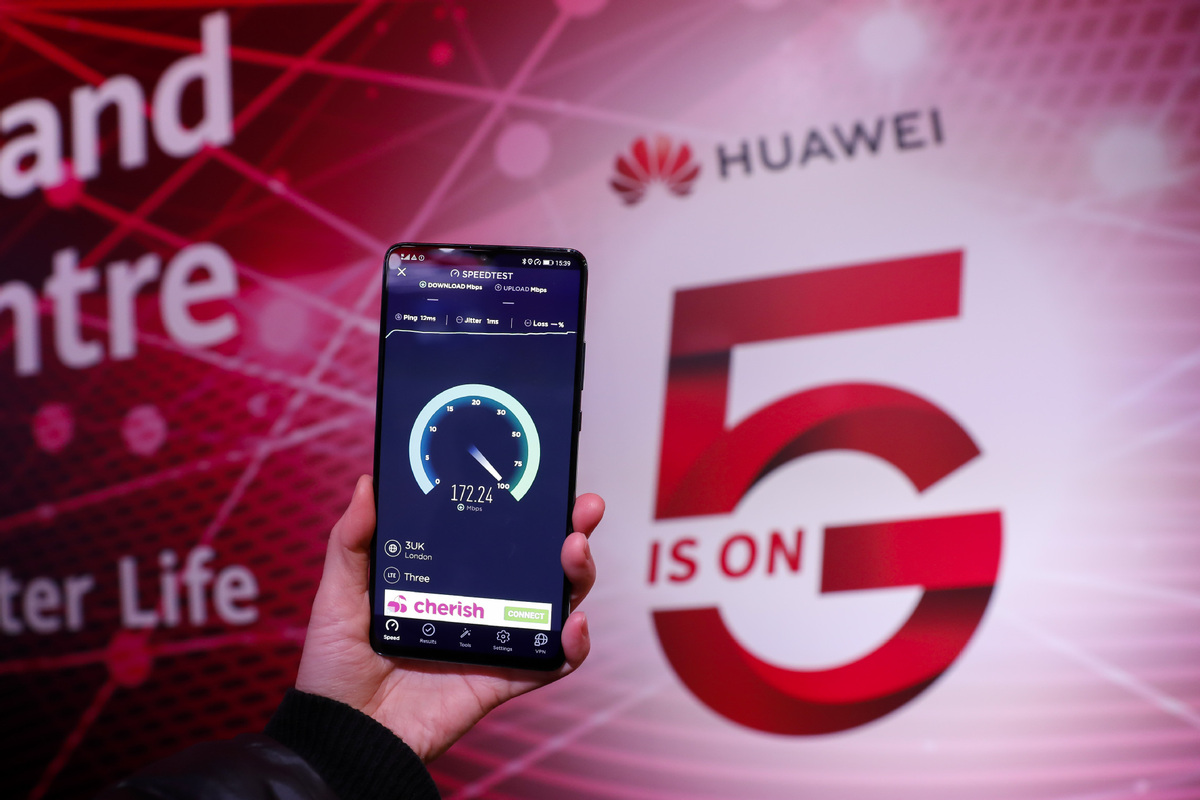Britain standing firm over Huawei 5G deal


No govt wavering, UK official says, as tech giant defends security record
The British government intends to stand by its decision to allow Chinese telecoms company Huawei to have a significant role in the development of the country's 5G network, despite pressure for it to reconsider the matter, a senior civil servant has said.
After months of deliberation, British Prime Minister Boris Johnson at the start of the year decided to allow Huawei to be involved in up to 35 percent of the network's construction in the United Kingdom, with limits on the extent and restrictions on which parts of the network it could be part of, despite facing opposition both at home and abroad.
On Tuesday, when asked about the likelihood of a change of heart, Simon McDonald, head of the Foreign Office diplomatic service, said: "The government decided to proceed with an investment but with very strict conditions. ... As far as I know that... is a firm decision and is not being reopened.
"China is a very important partner of the United Kingdom and I think it's compatible to proceed with the Huawei decision, and have the strategically independent relationship that I have been talking about."
The most vocal critic of Britain's decision has been US President Donald Trump, who has already put pressure on Canada, Australia and New Zealand over their links with Huawei. Together these countries, the United States and the UK make up the so-called Five Eyes intelligence sharing network, and Trump has suggested that allowing China access to Britain's telecoms network would be a security risk.
But there has also been significant resistance closer to home, with a rebellion in Johnson's own Conservative Party, which has seen a group featuring many prominent Brexit supporters including former party leader Iain Duncan Smith and former Brexit secretary David Davis voting against the government in parliamentary debates on the issue.
Key decision-makers, the group said, had allowed Britain to "grow dependent on China and have failed to take a strategic view of Britain's long-term economic, technical and security needs".
Duncan Smith said: "The reality is that when it comes to security versus cost, my view is security wins every single time because I worry when we start compromising security."
In response to the allegations of a security threat, which have yet to be backed up by any evidence, Huawei vice-president Zhang Jiangang has published an open letter, in which he pointed out the importance of a strong telecoms network, as highlighted by the huge increase in home working that had occurred across Britain as a result of the novel coronavirus outbreak.
"There are those who choose to continue to attack us without presenting any evidence," he wrote.
"Disrupting our involvement in the 5G rollout would do Britain a disservice. When we emerge from this crisis, we look forward to continuing to play our role as a key partner in improving the networks, benefiting the economy and ultimately everyone in the UK, ending the postcode lottery of good connectivity.
"Right now, by keeping Britain online, we are able to play our part in helping the country through this difficult period."

































